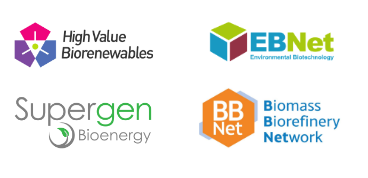Seafibres: Production of sustainable fibres from UK sourced seaweed

- Project lead
- Leonardo Gomez
- Institute
- University of York
Summary:
Seafibres aimed to produce sustainable functional fibres derived from UK sourced brown algae and to harness the potential of seaweed farming for sourcing algae biomass that could be fractionated and used to produce environmentally friendly fibres for specialised applications. At present, seaweed and products derived from them are sourced overseas. Half of the global seaweed production is provided by China and the associated market size for this overall industry is currently 7 billions € per annum worldwide. The geographical situation of the UK offers innumerable advantages for aquaculture, but this remains an underutilised resource. Contrary to land agriculture, seaweed production can reduce the pressure on farmland and constitutes a carbon-negative activity.
Aims:
To establish an efficient and sustainable protocol to extract and hydrolyse alginates from two brown algae (Saccharina and Sargassum), oxidise these acidic sugars into polyhydroxyl diacids and produce polyesters from the diacids obtained. We aimed to develop a novel, biocatalysed method to produce alga-derived functional polymers, leaving the secondary hydroxy groups that impart water solubility and thus make the polyesters applicable to use in rheology modifiers and films for packaging and home care formulations.
Outcomes:
We have optimised the extraction and yield of alginates from Saccharina latisima and Sargassum muticum. We have shown that the extraction of alginates is significantly improved by using a combination of citric acid and sodium carbonate. These alginates can be hydrolyse using chemical or enzymatic procedures to produce uronic acids. The enzymatic hydrolysis of alginates showed that new peak was present by DIONEX and TLC. We have also shown that the products of alginate hydrolysis can be enzymatically oxidised into diacid, potential monomers for polymerisation.
Further work will be necessary to evaluate a commercial case and scale up of the processes explored in this proof of concept project.
Impact:
The full valorisation of seaweed biomass represents the main obstacle to establish a UK based supply chain. Finding high value products derived from seaweed can support a low carbon economic activity that contribute to the bioeconomy. The present project explored the valorisation of a farmed seaweed (Saccharina) and an invasive species (Sargassum) evaluating the alginates obtained from them, optimising the extraction of these alginates and exploring the production of monomers and polyesters that can be derived from the biomass.

Figure 1: Alginate extraction from SAC, LAM, SACC, and HIM.

Figure 2: Comparison of the Young’s Modulus and tensile strength of SAC and LAM alginate with different polymers.
Academic partners: Sameer Rahatekar, Carnfield University; Duncan Macquarrie, University of York; Thierry Tonon, University of York
Industrial partners: Cornish Seaweed Company; Finisterre








